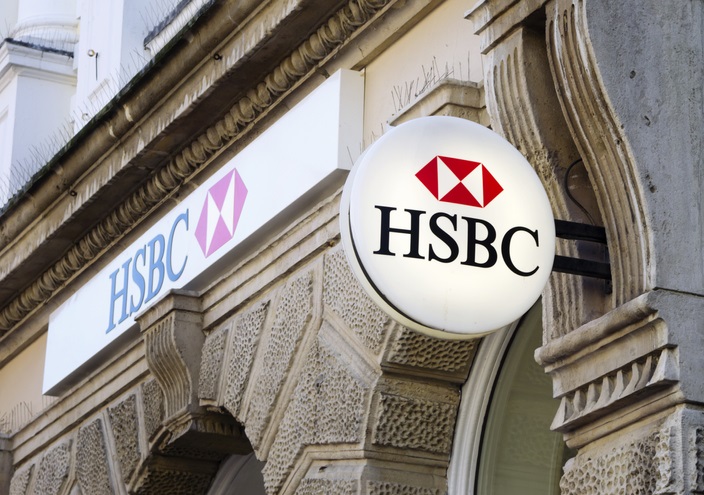HSBC figures show hope, but is the 2020 damage already done?
The bank cuts its full-year loss forecast, but it still needs to make up ground.
27th October 2020 10:31
by Richard Hunter from interactive investor
The bank cuts its full-year loss forecast and stays open to a dividend, but it still needs to make up ground.

The numbers have provided a brief respite to the torrid time which HSBC (LSE:HSBA) has suffered of late, even if much of the damage has already been done for the year as a whole.
The sharp reduction in expected credit losses is a welcome development, falling in the quarter to $785 million (£602.8 million) versus a figure of $3.8 billion previously. As such, the bank is now guiding full-year losses to be at the lower end of the $8 to $13 billion range it previously estimated.
Much of the finer detail will come at the annual results in the new year, but HSBC is clearly making strides to streamline wherever possible. It is bearing down on costs (operating expenses were slightly lower in the quarter).
It is also planning investment in its core Asian region, partly with the use of new technology. At the same time, the business is being shifted where possible towards a fee-based model, given the likelihood of historically low interest rates to crimp margins.
- The Week Ahead: Lloyds Bank, Shell, BT, FAANG stocks
- Chart of the week: are ailing UK banks poised to rebound?
The usual positive, namely the strength of the balance sheet, remains in evidence. The capital cushion has ticked higher once more, to 15.6%, while a liquidity capital ratio of 147% is more than ample.
This opens the door to the possibility of the dividend being reintroduced at the time of the full-year announcement. However, the bank is already managing down expectations in stating that any dividend would likely be conservative.
As such, investors should not be expecting an immediate return to the previous yield of around 5% which was in place prior to the current cut.
Despite these chinks of light, the situation remains difficult for HSBC.
From a macroeconomic perspective, tensions between the US and China and unrest around Hong Kong provide headwinds.
This is quite apart from the report last month alleging illicit activity and the possibility of HSBC being added to a Chinese list of firms deemed to be a threat to national security. Stalling negotiations in the UK/EU debate also cast a shadow.
- Market snapshot: will cheap UK stocks be a ‘buy’ in Q4?
- ii view: brighter dividend prospects for Barclays
- Take control of your retirement planning with our award-winning, low-cost Self-Invested Personal Pension (SIPP)
The headline figure continues to be impacted by lower interest rates, and for the quarter by a goodwill impairment of its Saudi bank involvement.
Net Interest Margin fell again to 1.2% from 1.6% at the half-year stage, and all units showed some profit, but little to no growth.
While there was a notable contribution from the Global Banking and Markets unit, this did not offset revenues which declined by 11%, leading to a higher cost/income ratio of 67.4% which compares to 61% a year before. Pre-tax profits declined by 36% in the quarter and are now down by 57% in the nine months of the year to date.
The warm welcome to this quarterly update is something of a relief rally. Prior to today’s spike, the shares had lost 48% over the last year, as compared to a decline of 21% for the wider FTSE 100.
The decline is similar in the year to date, with the 46% drop underlining how much ground the bank needs to make up. The market consensus of the shares as a ‘sell’ may yet remain intact until such time as any improvement can be seen to be an established trend rather than a blip.
These articles are provided for information purposes only. Occasionally, an opinion about whether to buy or sell a specific investment may be provided by third parties. The content is not intended to be a personal recommendation to buy or sell any financial instrument or product, or to adopt any investment strategy as it is not provided based on an assessment of your investing knowledge and experience, your financial situation or your investment objectives. The value of your investments, and the income derived from them, may go down as well as up. You may not get back all the money that you invest. The investments referred to in this article may not be suitable for all investors, and if in doubt, an investor should seek advice from a qualified investment adviser.
Full performance can be found on the company or index summary page on the interactive investor website. Simply click on the company's or index name highlighted in the article.